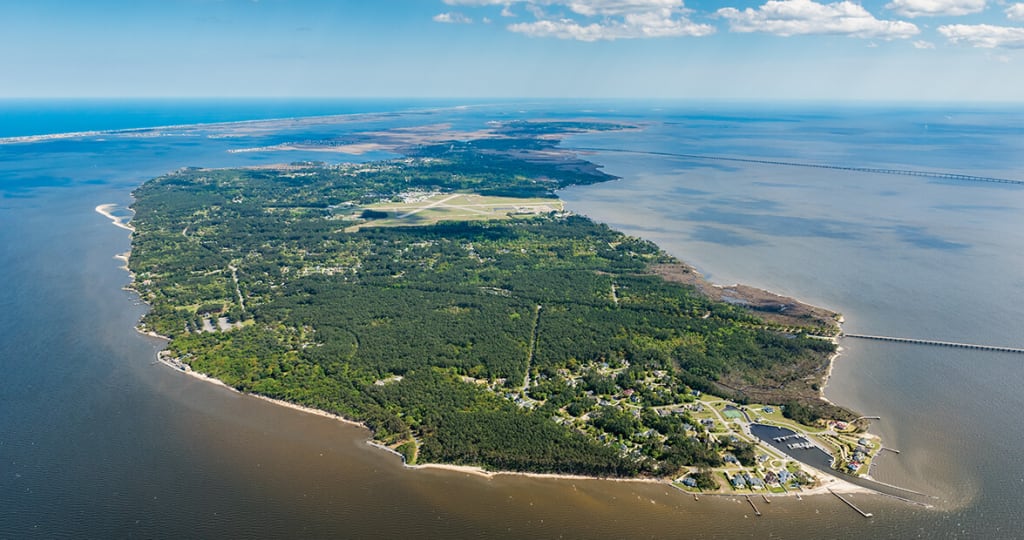The Mysterious Disappearance of the Roanoke Colony
What Happened to the Lost Settlers of Roanoke Island?

In the late 16th century, a group of English settlers arrived on Roanoke Island off the coast of what is now North Carolina, seeking to establish a colony in the New World. However, their attempts to build a sustainable settlement were fraught with difficulty, and after several years of struggle, the colonists vanished without a trace. To this day, the fate of the Roanoke colony remains one of America's most enduring mysteries, with numerous theories and speculations but no definitive answer. In this article, we'll delve into the history of the Roanoke colony and explore some of the possible explanations for its disappearance.
The Roanoke Colony: A Brief History
The story of the Roanoke colony begins in 1584, when Queen Elizabeth I granted Sir Walter Raleigh a charter to establish a colony in North America. Raleigh sent an exploratory expedition to the region, led by Sir Richard Grenville, which made contact with the local Native American tribes and established friendly relations. The following year, Raleigh sent a second expedition, this time with the aim of establishing a permanent settlement. This group, led by Sir Ralph Lane, landed on Roanoke Island and began building a fort and homes.
The Roanoke colony faced numerous challenges from the outset. The settlers struggled to find enough food and supplies, and relations with the local tribes began to sour. In 1586, a relief fleet arrived with supplies and reinforcements, but many of the settlers were eager to return to England and the colony was abandoned.
Raleigh was undeterred, and in 1587 he sent a third expedition to Roanoke, this time led by John White. This group included not just soldiers and laborers, but also women and children, with the hope of establishing a more permanent and self-sustaining community. The colonists arrived in July of 1587 and began rebuilding the settlement.
However, the Roanoke colony was once again beset by difficulties. Relations with the local tribes had deteriorated further, and the settlers were unable to find enough food or secure the resources they needed to survive. John White eventually returned to England in 1588 to seek help and supplies, leaving behind his daughter and granddaughter, Virginia Dare, who became the first English child born in the New World.
When White returned to Roanoke in 1590, he found the settlement abandoned and the colonists gone. The only clues to their fate were the words "Croatoan" and "Cro" carved into a tree and a post, respectively, as well as the letters "CRO" etched into a nearby fort's gate. Despite numerous searches and investigations, no definitive explanation for the disappearance of the Roanoke colony has ever been found.
Possible Explanations for the Roanoke Colony's Disappearance
Over the years, many theories have been put forward to explain the fate of the Roanoke colonists. Some of the most commonly suggested explanations include:
Forced Relocation by Native Americans: One of the most plausible theories is that the colonists were forced to relocate by the local Native American tribes. The carving of the word "Croatoan" suggests that the settlers may have gone to live with the Croatoan tribe, who were known to have been friendly with the English. However, no concrete evidence has ever been found to support this theory, and it's unclear why the colonists would have left behind such a clear message if they were being forcibly moved.
Massacre by Native Americans: Another possibility is that the colonists were massacred by the local tribes. The deteriorating relations between the settlers and the Native Americans could have led to conflict, and it's possible that the colonists were attacked and killed. However, no physical evidence of a violent struggle has ever been found, and it's unclear why the Native Americans would have left behind the word "Croatoan" if they were responsible for the massacre.
Starvation and Illness: The Roanoke colony faced numerous challenges in terms of food and supplies, and it's possible that the settlers simply succumbed to starvation and illness. However, this theory doesn't explain why the colonists would have left behind the carved messages, and it's unlikely that they would have all died at the same time without any record of their deaths.
Abandonment or Desertion: It's possible that the colonists simply decided to abandon the settlement and return to England or seek a new location elsewhere. Alternatively, some of the settlers may have deserted the colony and gone their own way. However, this theory doesn't explain why the colonists would have left behind the carved messages or why no trace of their movements has ever been found.
Integration with Native Americans: Some theorists have suggested that the Roanoke colonists may have integrated with local Native American tribes and assimilated into their culture. The word "Croatoan" could have been a signal that the colonists had joined the Croatoan tribe. However, no physical evidence of such integration has ever been found, and it's unclear why the colonists would have abandoned their settlement and way of life in favor of assimilation.
The truth about what happened to the Roanoke colony may never be fully known, but the enduring mystery of their disappearance has captured the imaginations of people for centuries. The story of the Roanoke colonists has been the subject of numerous books, films, and television shows, and the search for answers continues to this day.
Conclusion
The disappearance of the Roanoke colony remains one of America's most intriguing historical mysteries. Despite numerous investigations and theories, no definitive answer to the question of what happened to the settlers has ever been found. The carving of the word "Croatoan" has provided tantalizing clues, but the true fate of the colonists remains a mystery. The story of the Roanoke colony is a reminder of the challenges and uncertainties that faced early settlers in the New World, and a testament to the enduring power of unsolved historical mysteries.
About the Creator
Muhammad Hamza
I'm Hamza, Passionate writer on personal growth, wellness, and technology. Providing compelling insights and thought-provoking content for an exciting journey of discovery.Join me on this exciting journey of exploration and discovery.






Comments (1)
nicely written ......